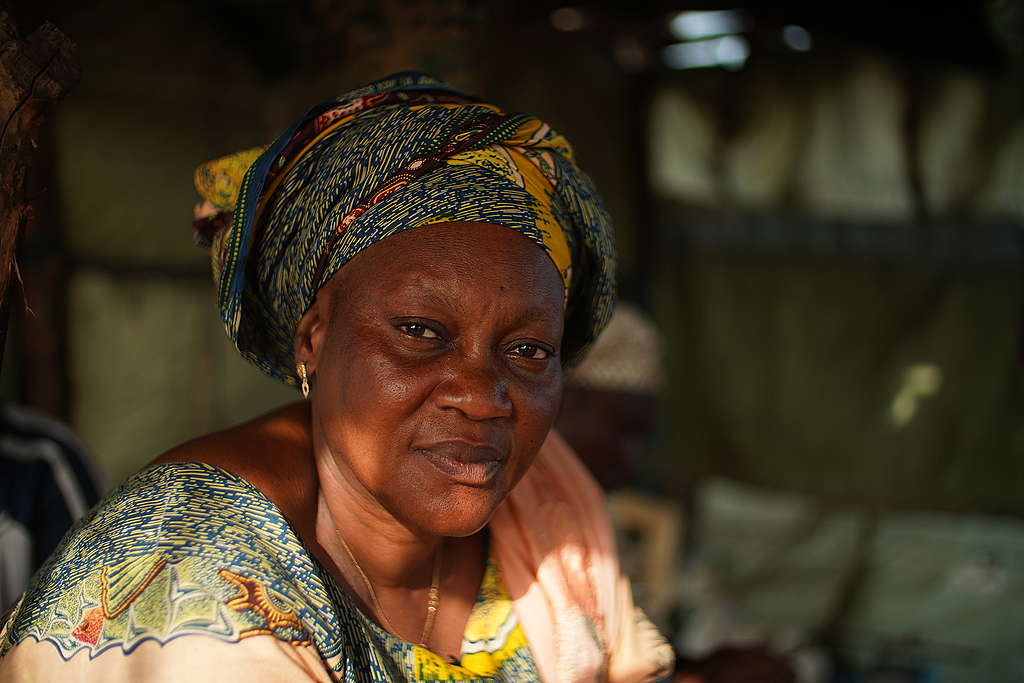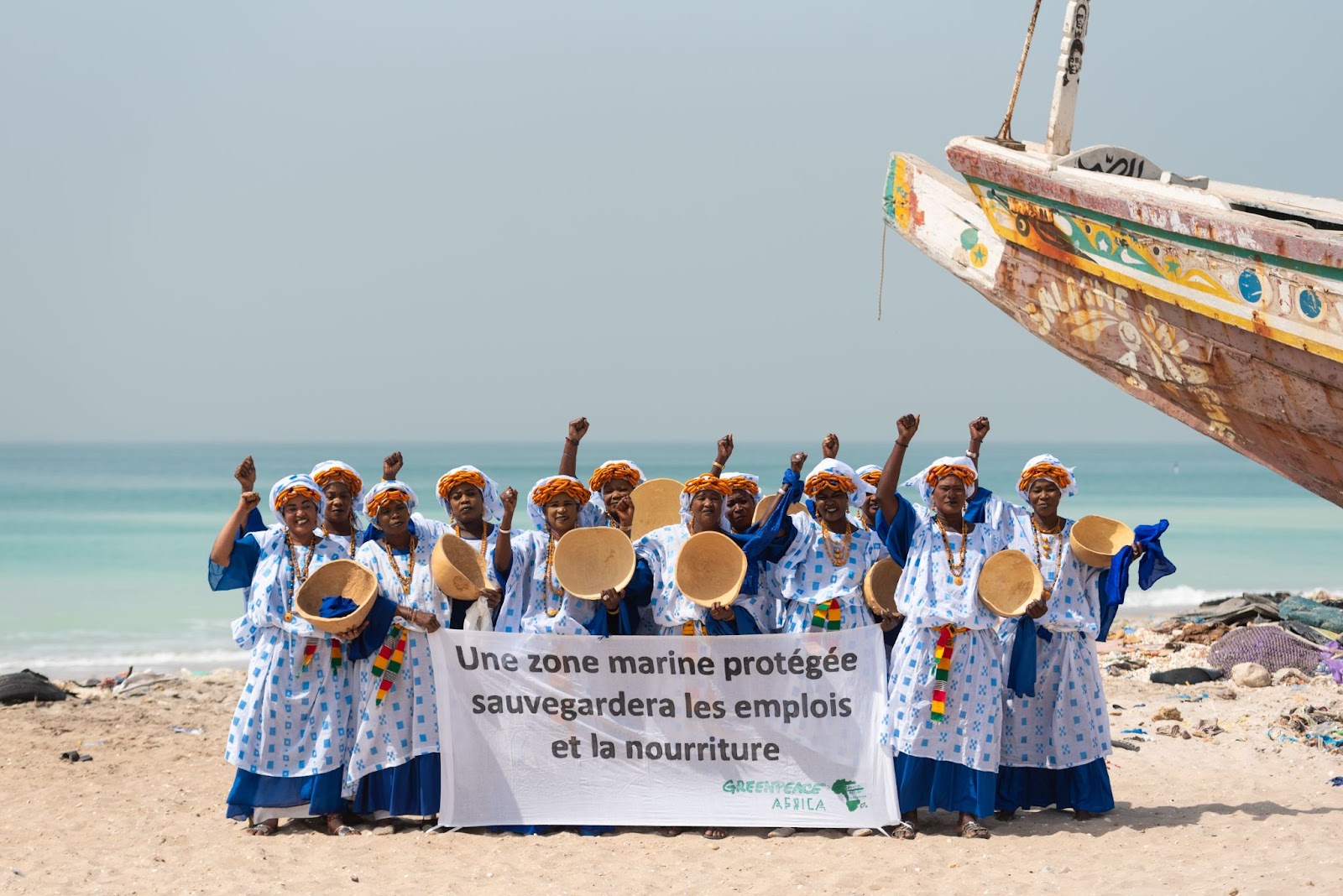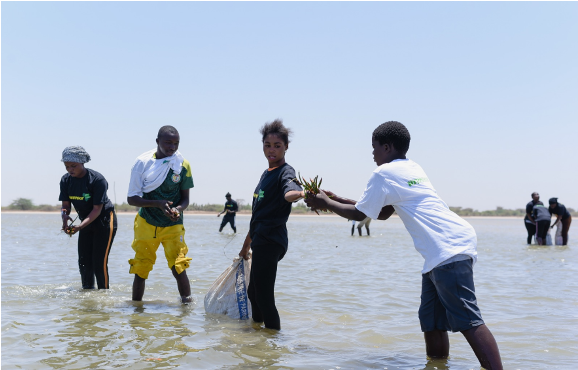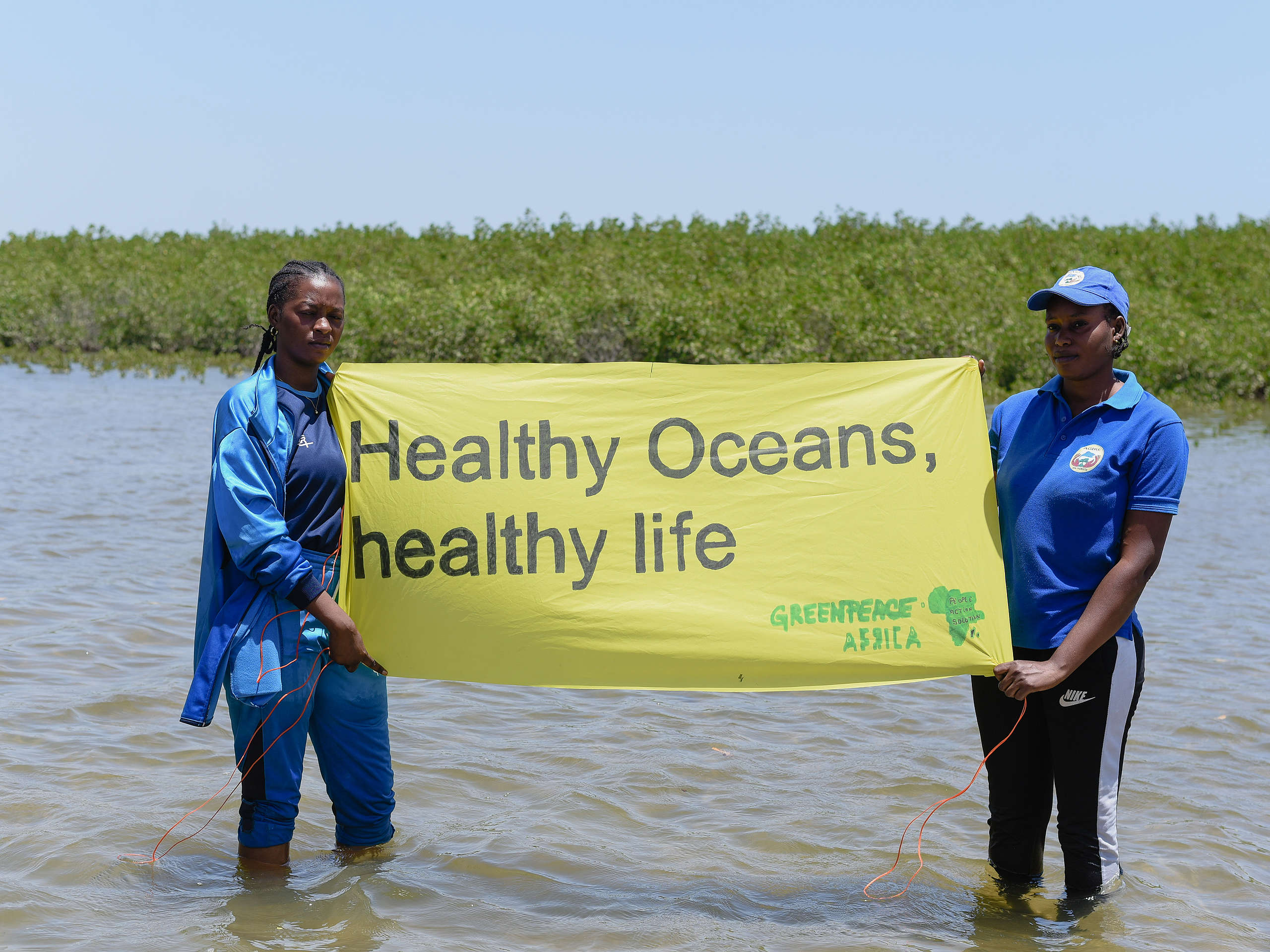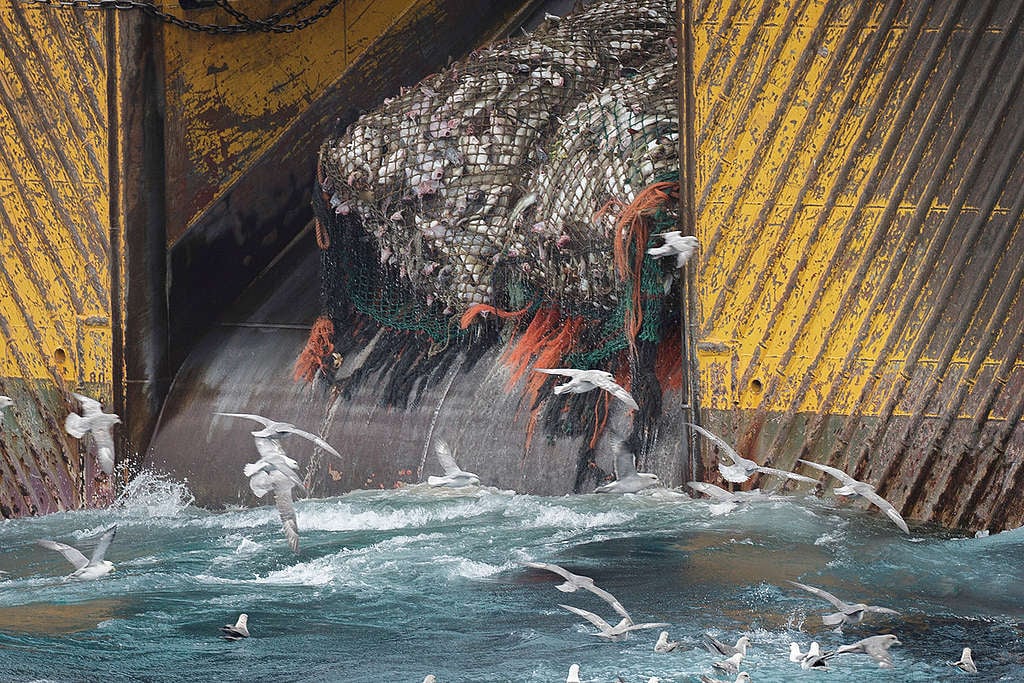
Press Release
Dakar, Senegal, 9th October 2020 – While governments in Senegal, Mauritania and The Gambia have been carrying out emergency food distributions to local communities in the wake of the COVID-19 pandemic, [1] a new Greenpeace report, exposes how the same governments have kept enabling systematic plunder of the oceans by foreign fishing vessels and the Fishmeal and Fish Oil (FMFO) industry. [2] Some of these industries have gone as far as trying to benefit from the COVID-19 lockdown situation.
“West Africa’s declining fish stocks should be managed and secured, first and foremost to feed people in the region, especially at a time of looming food insecurity [3], as well as a global biodiversity crisis,” said Dr Aliou Ba, Political Advisor for Ocean Campaign at Greenpeace Africa.
“The world economy is in recession and the West African region is not spared. At the same time the Fishmeal and Fish Oil industry is thriving, using local fish stocks to produce food for pets, pigs and fish in the aquaculture industry around Europe and Asia at the expense of vulnerable populations in West Africa. West African governments must work together to shut down these factories for good,” Dr Ba concluded.
The Greenpeace report, entitled “Seasick: as COVID-19 locks down West Africa, its waters remain open to plunder” is based on observations of fishing vessels and FMFO factories in Senegal, The Gambia and Mauritania from March 2020 until end July, a period in which COVID-19 pandemic lockdowns were introduced across West African countries.
“Allowing the continued operation of fishmeal factories during the lockdown is really a problem because it impacts the supply of fish for local people and creates unfair competition between factories and female fish processors, who are impacted by restrictions,” said activist and member of Platform of Artisanal Players of Senegal’s Fisheries, PAPAS, Mor Mbengue.
Based on data from the Automatic Identification System (AIS) used for vessels worldwide, Greenpeace’s research confirms at least eight industrial fishing vessels have been engaged in questionable activities in the observed period. All of them carry the Fu Yuan Yu name and were found to be displaying activities suggesting fishing in the Senegalese Exclusive Economic Zone (EEZ) while it was impossible to verify whether they carried a license granted without following the right license procedure. In other cases, the vessels were seemingly making use of an old trick of disguising their location by manipulating their AIS data. [4]
Greenpeace concludes its report with a demand to shut down permanently the FMFO factories operating in West Africa except for the ones who exclusively use trimmings. It further demands publication of the full list of vessels licensed to fish in all Sub Regional Fishery Commission (SRFC) countries, an official status for women fish processors, as well as a reform of Senegal’s fishing licensing process to improve transparency and inclusiveness of the artisanal sector in the decision-making process. Finally, Greenpeace is calling on all governments in the Economic Community of West African States (ECOWAS) region to adopt a sustainable regional management plan of fisheries, with an urgent focus on dwindling pelagic stocks.
Contacts:
Tal Harris, International Communications Coordinator for Greenpeace Africa, Tel: +221 774 64 31 95, E-mail: [email protected]
Christina Koll, Senior Communications Coordinator, Greenpeace International (for international media requests): Tel: +4528109021, E-mail:[email protected]
Notes:
[1] Distribution of food to communities hit hard by the COVID-19 pandemic in The Gambia: https://emedia.sn/GAMBIE-COUP-D-ENVOI-DE-LA-DISTRIBUTION-DE-L-AIDE-ALIMENTAIRE.html Mauritania: https://aidara.mondoblog.org/2020/04/13/covid-19-et-soutiens-sociaux-20-000-menages-cibles-et-des-couacs/ Senegal:
[2] “Seasick: as COVID-19 locks down West Africa, its waters remain open to plunder”, a report published jointly by Greenpeace Africa and Greenpeace International: The report LINK
[3] The United Nations World Food Programme (WFP) has estimated that 43 million people in West Africa will be experiencing food insecurity or malnutrition in the next six months. 20 million of them due to socio-economic consequences of COVID-19 pandemic: https://news.un.org/en/story/2020/05/1063232
[4] Summary of findings from the joint report of Greenpeace Africa and Greenpeace International “Seasick: as COVID-19 locks down West Africa, its waters remain open to plunder”:
- As previously denounced by Senegalese media and fishing organisations, Greenpeace found evidence confirming the issuing of fishing licenses to the Fu Yuan Yu 9885, Fu Yuan Yu 9886 , Fu Yuan Yu 9888 and the Fu Yuan Yu 9889 on 17 April. The granting happened despite claims from the Senegalese Ministry of Fisheries on June 6th saying no new licences for industrial fishing vessels had been granted. In April, 56 industrial fishing vessels asked for a license to fish in Senegalese waters. The is the highest number ever in one go.
- Two other vessels, the Fu Yuan Yu 9881 and the Fu Yuan Yu 9887 were according to AIS data displaying activities suggesting fishing in Senegal. No licence information could be found for the Fu Yuan Yu 9881 but the company who operates the vessel claims it satisfies conditions of licence attribution. For the Fu Yuan Yu 9887 the vessel has been issued a licence for The Gambia for Senegal, but the company who operates the vessels claims it does not hold a licence for The Gambia.
- Four vessels, the Fu Yuan Yu 9882, Fu Yuan Yu 99885, Fu Yuan Yu 9889 and the Fu Yuan Yu 9890 looked to be making use of a trick to disguise the real position of a vessel by modifying their AIS data. The vessels followed the same pattern of broadcasting signals off the coast of Mexico when in reality evidence is suggesting their actual positions may be in Senegal Waters if “offset” calculation following a method used in Global Fishing Watch investigations from 2016 were applied. According to the company operating these vessels “The visibility of some vessels in Mexico could have resulted from a failure of the AIS system.”
- FMFO factories in Gambia, Mauritania and Senegal continued working during the COVID-19 restrictions. In Mauritania, while local communities including local fishermen were restricted by lockdown measures like the introduction of a curfew and the closing of country borders from 13th March, fishmeal and fish oil exports seemed to have continued operating. As an example the vessel ‘Key West’, known to transport fish oil, departed Nouadhibou three times from 1. March to 1. June According to Lloyd’s List intelligence. The vessel’s Liquid Tank Capacity is 3933 m³ According to Lloyd’s List intelligence. If filled with fish oil it would require the processing of more than 70 000 tons of fresh fish, the equivalent of the yearly fish consumption of more than 2.5 million people in a country like Senegal.
- In The Gambia, the FMFO factories in the country were closed down from 23 March but quickly reopened during April despite strong protests from artisanal fishing communities suffering from the restrictions imposed on them while the factories reopened. In particular female fish processors were struggling to keep up their livelihood during the lockdown.
- Due to the COVID-19 pandemic, local and artisanal fishermen have seen their activities restricted in the middle of the important pelagic season from January to July. However, according to local sources, the OMEGA Fishing FMFO factory in Joal continued working while hundreds of female fish processors and fishermen were struggling with lockdown measures, increased fish prices and fish scarcity.
